Changelog overview
Let users know about new changes to your product with a public product changelog.
Written By Markus from Featurebase
Last updated 14 days ago
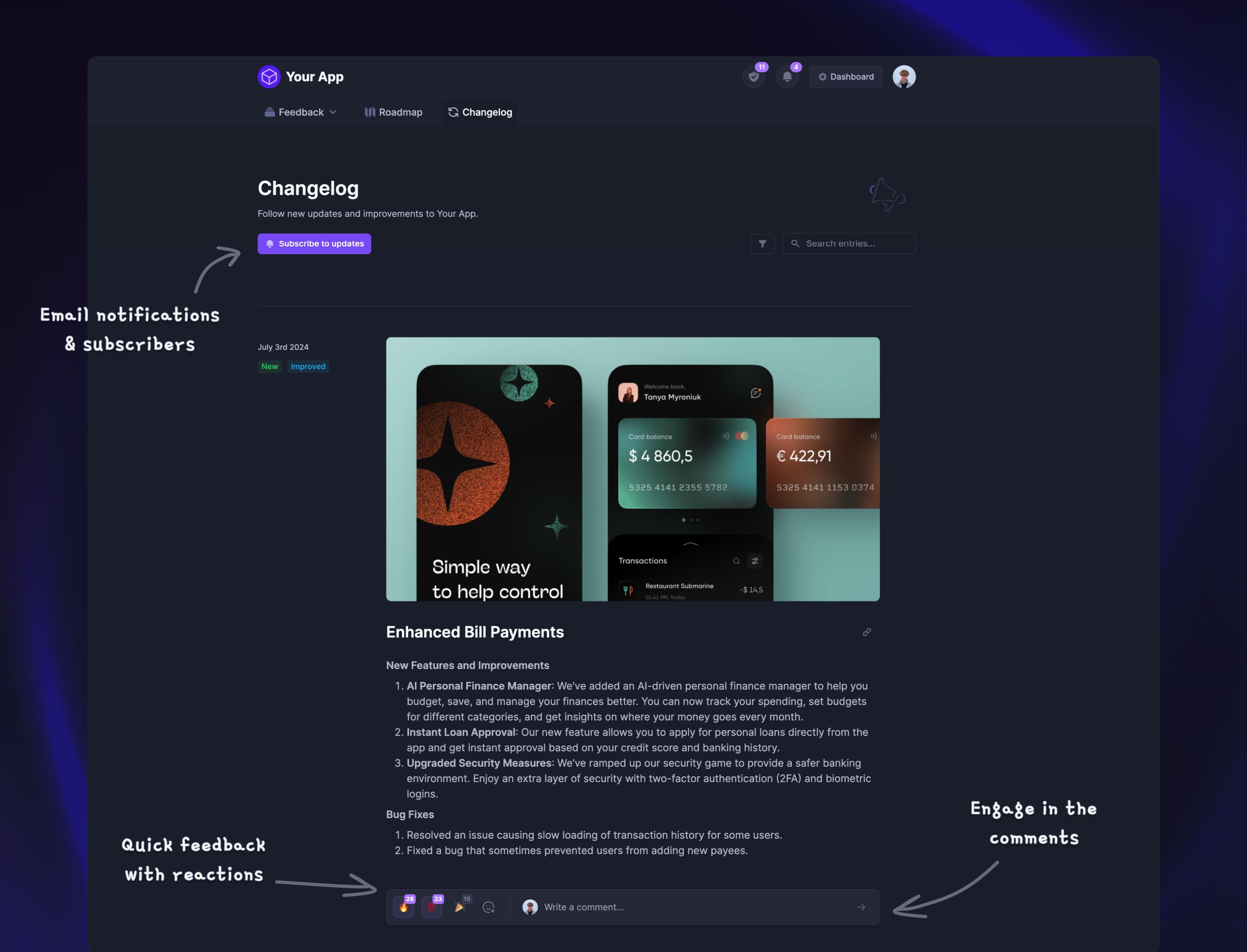
✨ Migrating from other tools? Import your changelogs via API by following this guide →
Overview
Changelog is a useful tool that lets you publish product updates for your users to see in one place. This keeps everyone updated and shows that you are continuously improving and listening.
All end-users whose email addresses you have in Featurebase are automatically subscribed to the changelog to receive email notifications about the latest releases. You can also embed the changelog into your app or website using different available methods.
📹 For a video overview, see the Changelogs overview in Featurebase Academy →
Posts
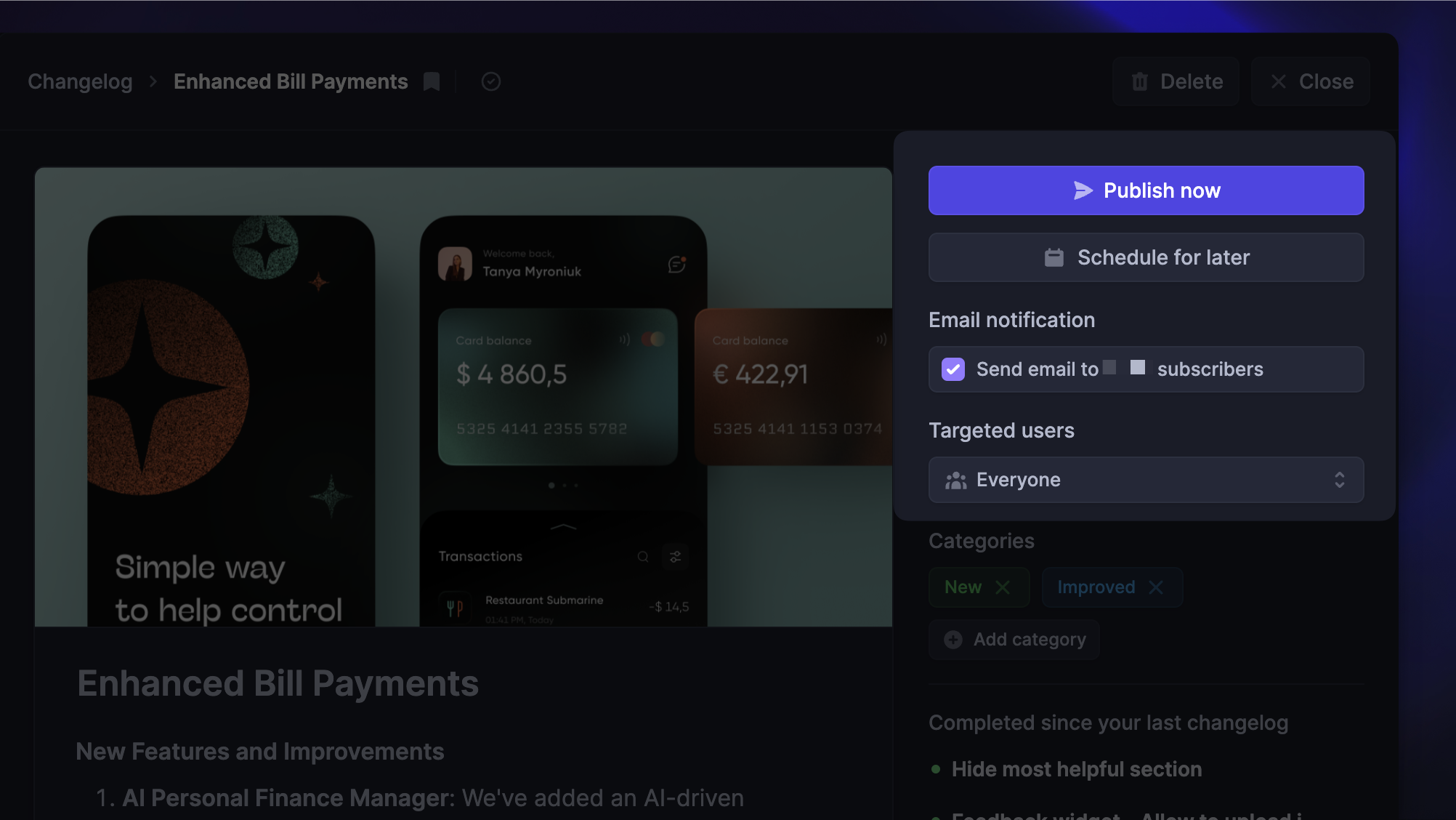
A changelog post consists of the title, body, and illustration.
You can create changelogs for everyone or just certain customer segments. This can be useful for large, sophisticated companies and products. Learn to do that here: Segmenting changelogs
You can also create changelogs in your customers' native languages, automatically visible only to the language speakers. Learn to do that here: Changelogs in multiple languages
After creating the post, you can choose whether to notify users via email. Finally, you can publish posts immediately or schedule them for future release. Learn to do that here: Creating changelogs
Categories
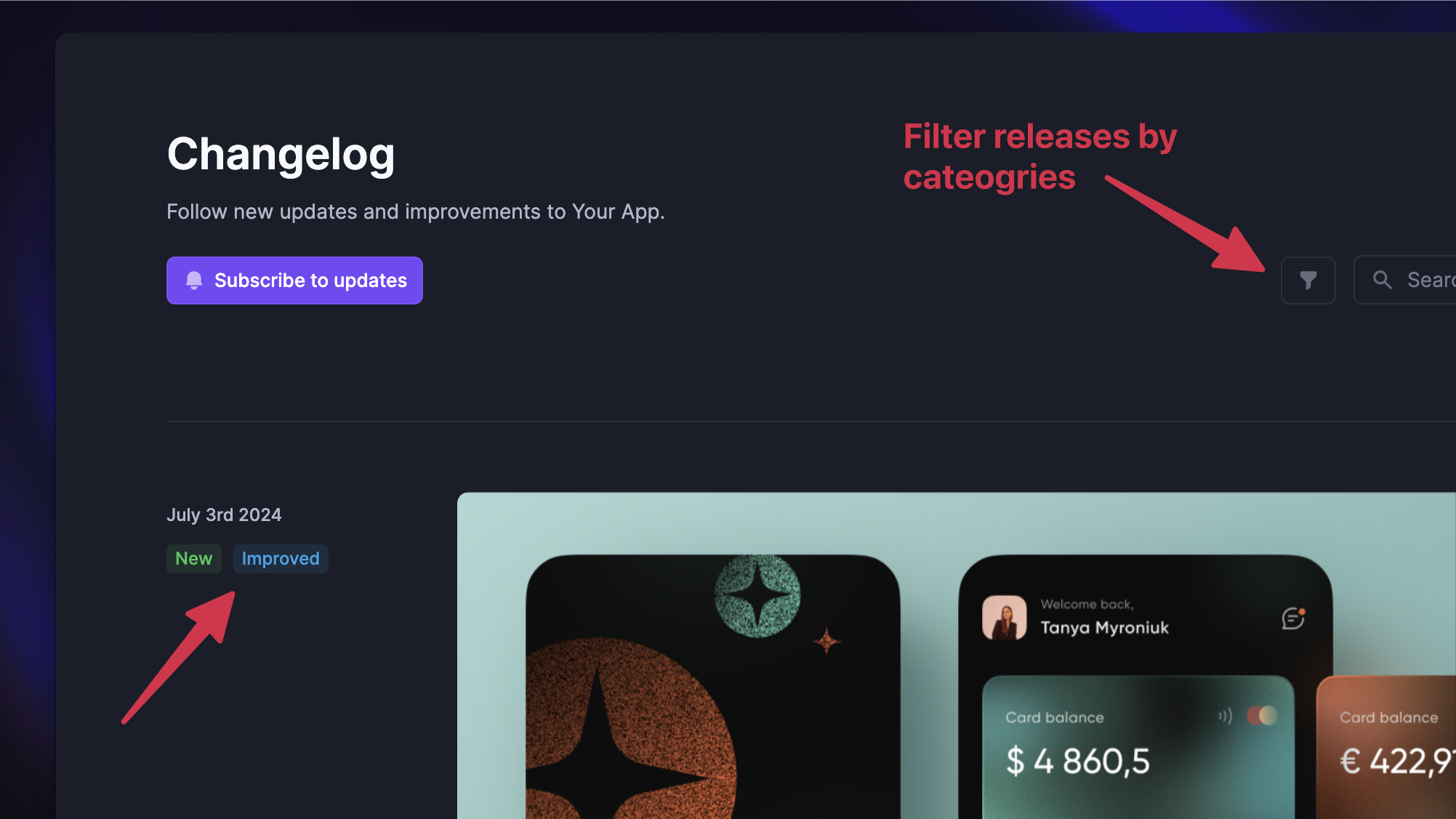
The changelog has categories you can use to show users the type of update. Categories can also be used to filter changelogs.
By default, your organization will have the categories New, Improved, and Fixed. But you can create and edit them however you like: Configuring the changelog
Subscribers
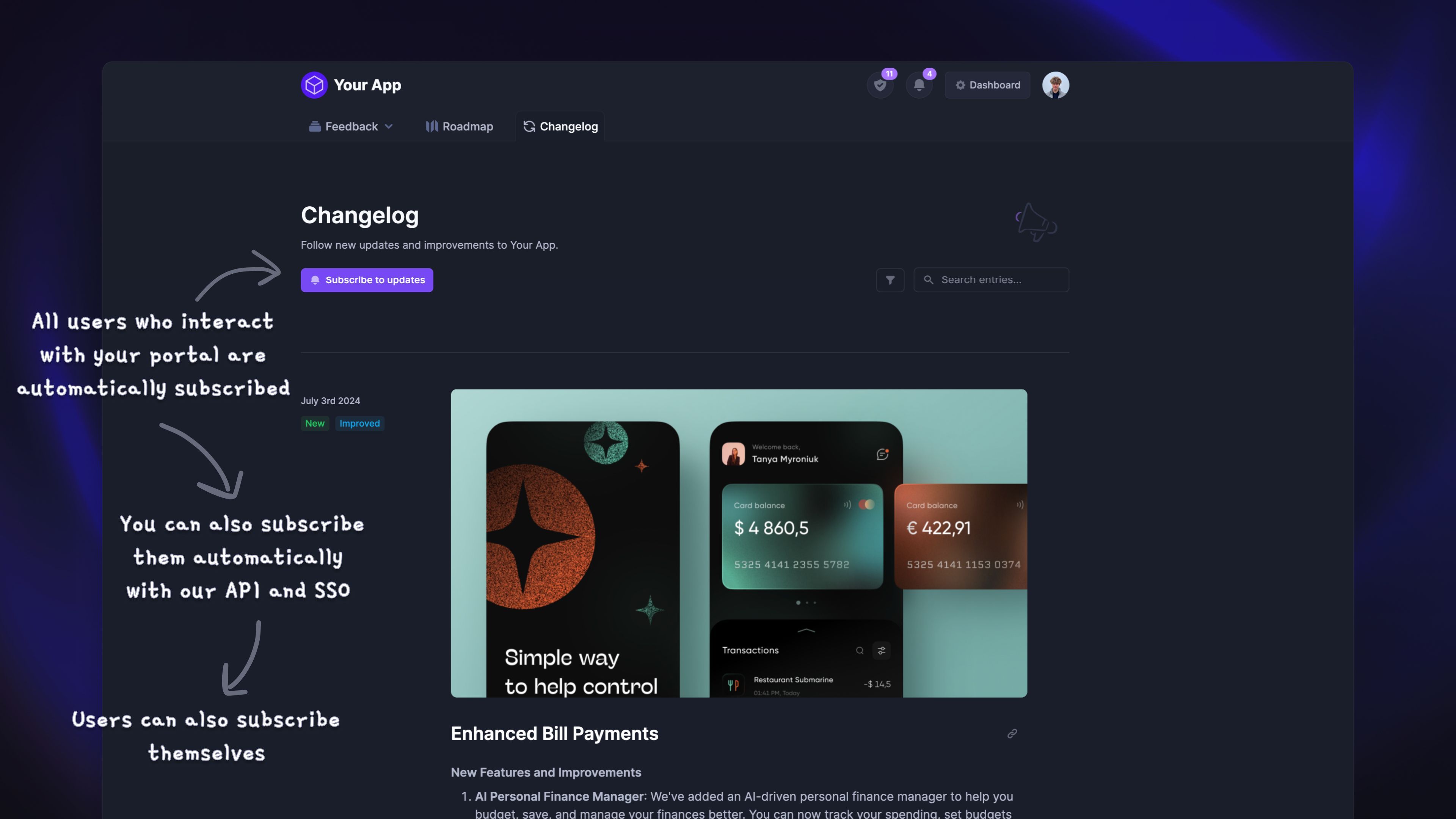
Subscribing users to your changelog sends them email notifications about new releases. This is one of the most impactful setups you can take for your changelog’s success!
By default, Featurebase automatically subscribes all end-users to changelog emails if you have their email address. This includes users who you’ve synced to Featurebase, interact with your portal, or contact you through support chat. The goal is to make sure important updates reach your users without extra setup.
Sync your customer data to Featurebase: Tracking user data
Emails
Whenever you publish a new update or release, you can send an email to your users. The email mirrors the actual changelog post. You can see an example here →
You can also select an option to not show the update on the public changelog page or widgets (only send an email). This lets you use the changelog as just an email tool for newsletters, for example.
Comments & reactions
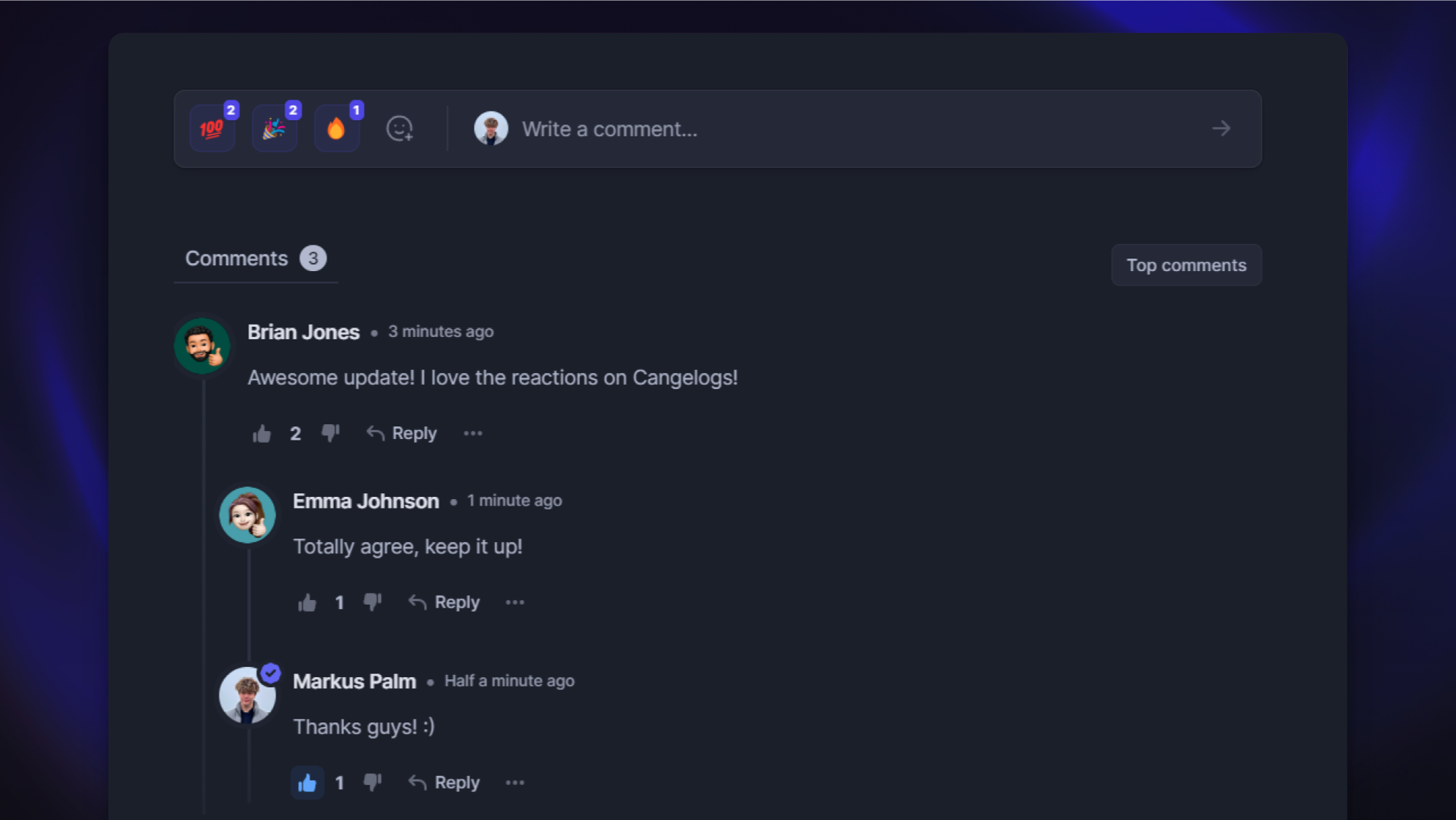
Changelog also has comments & reactions to create a more collaborative environment around your public portal. They also work in the Changelog Popup and the Messenger widget.
Tip: Encourage your users to leave their thoughts at the end of your changelogs with a CTA!
Analytics
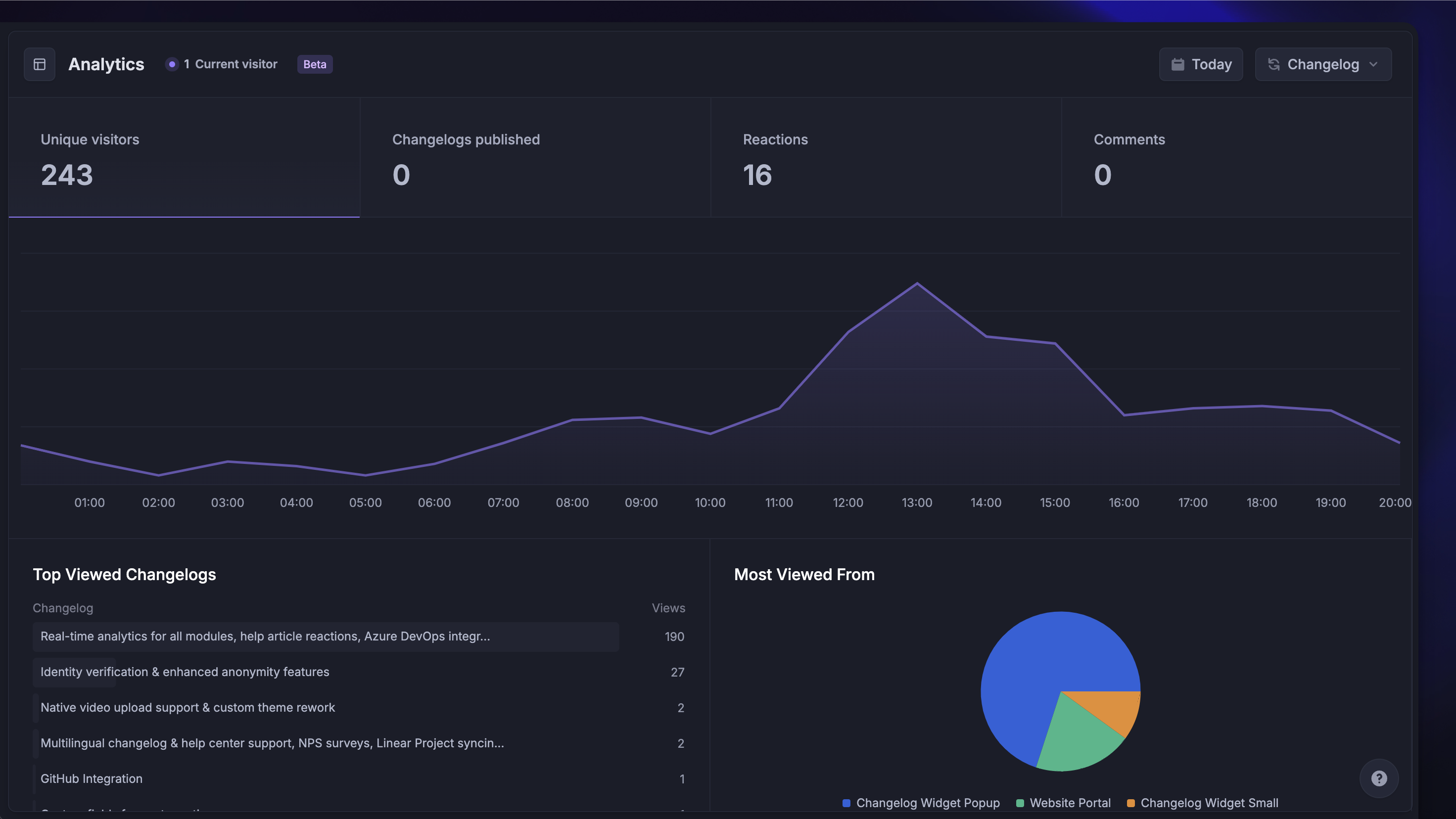
It’s important to know how your updates are performing and where they’re viewed from. From the Changelog analytics, you’ll quickly see what’s popular, which posts are most reacted with, and whether they’re viewed from widgets or the public page.
Learn more: Changelog analytics
Sharing your changelog
There are three different ways to integrate the changelog into your product.
Add a link
The easiest way to add a changelog to your product or site is to link it to a button or a text. This could be anywhere, from the footer to your product’s menu.
Just copy the URL of your live changelog (e.g. https://feedback.yourcompany.com/changelog) and paste it where you like on your page or app.
Tip: Many of our customers like to feature their changelogs in their marketing page’s footers and product menus.
Changelog widgets
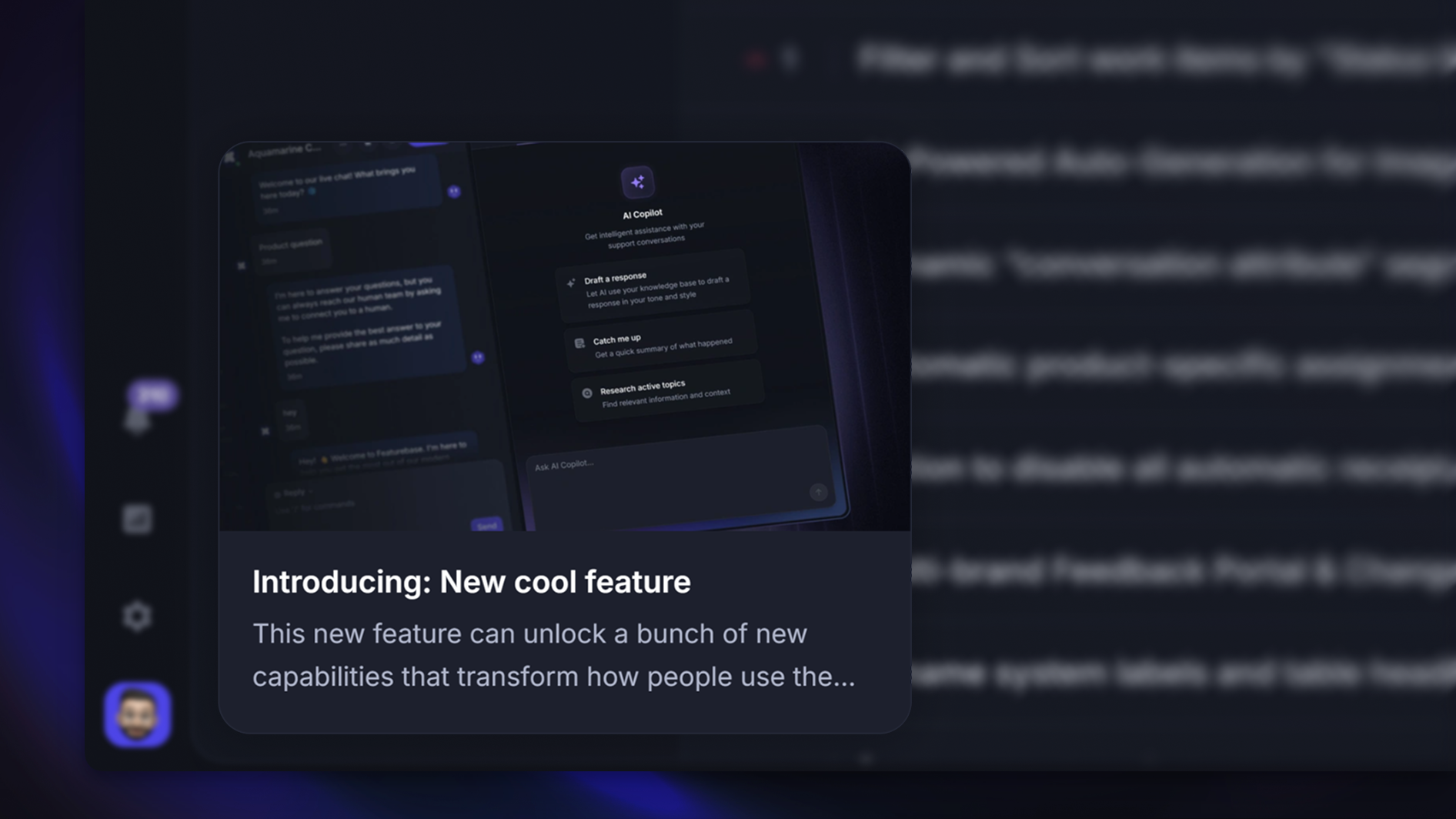
The second way is to use one of our neat Changelog widgets to show the latest updates straight from your app.
This is great because it means users don't need to leave your app to see updates. Plus, they can be toggled to automatically show users fresh updates when they enter a page.
Learn to set it up: Install Changelog Widget
Good to know: You can automatically authenticate users in the widget using SSO for a seamless experience.
Messenger widget

If you’re also using Featurebase’s support & knowledge base functions, you can bring your product updates directly into your app with our Messenger Widget.
Learn to set it up: Messenger installation
Embedded changelog view
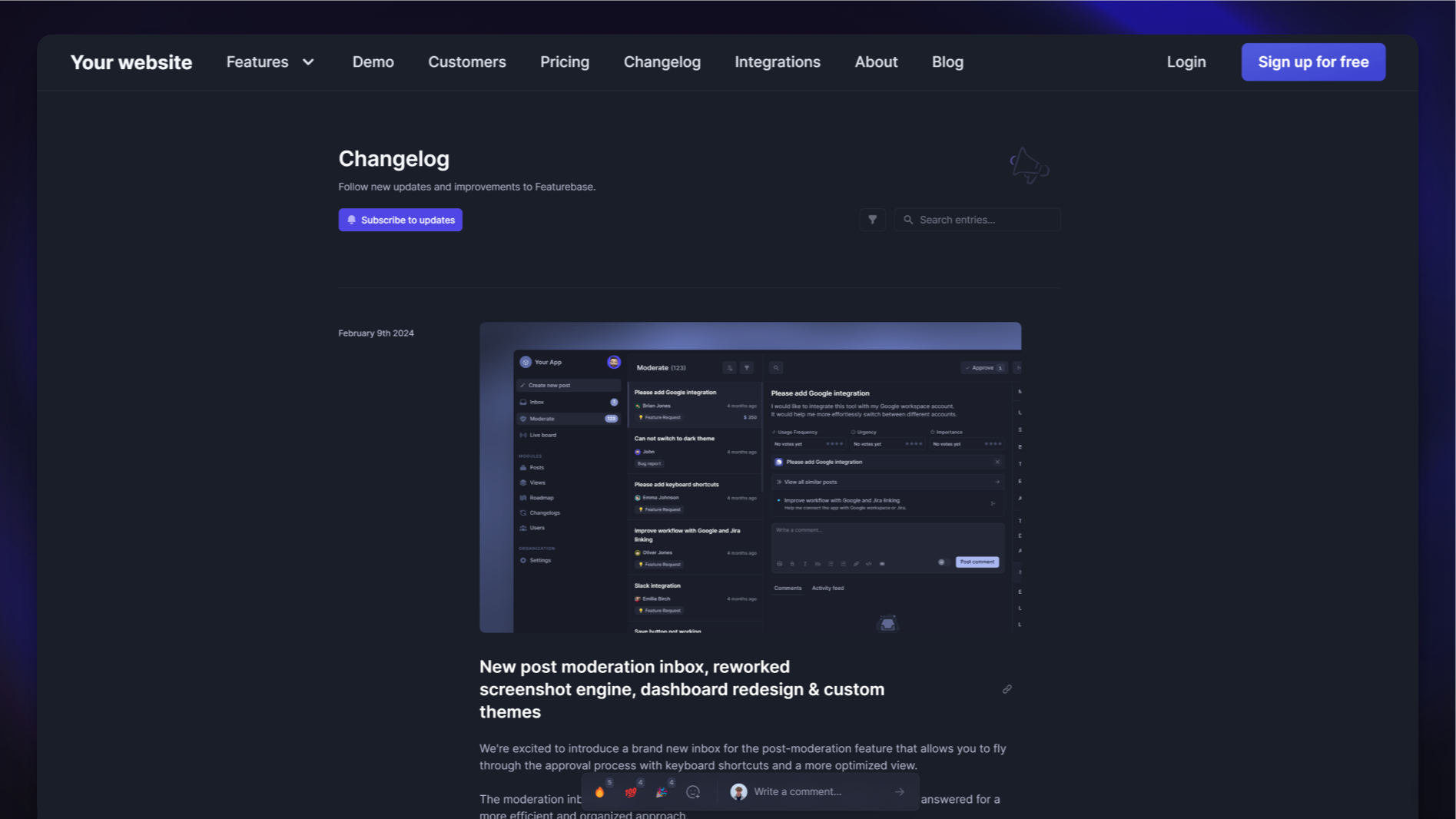
The last method is embedding your changelog directly into your app in its original form, allowing users to see all of your product updates.
Here's how to set it up: Embed Featurebase
More on changelogs: